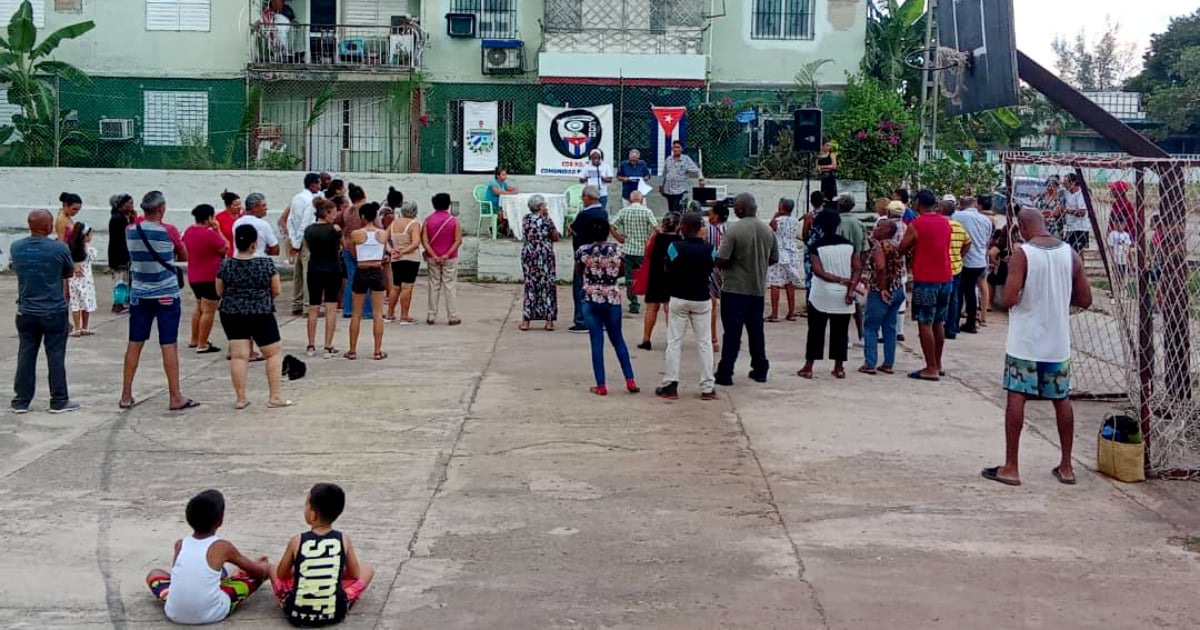The process of delegates reporting to their grassroots voters kicked off this Friday in Cuba, extending until November 20, amidst a severe energy and food crisis that heightens public discontent. The accountability exercise, which was postponed last October due to a "fuel shortage" cited by the regime, has now started, putting authorities on alert for potential protests that might deviate from what the regime defines as the "Cuban democratic system."
Roberto Morales Ojeda, a deputy for the municipality of Cienfuegos, stated on Friday, "The accountability of the delegate is the most important political process this year, for which the State Council issued the call. Delegates, popular councils, national and municipal assemblies with all their commissions, and the departments that attend to these entities in the provinces have worked very intensively towards this." Morales Ojeda, who is also the Secretary of Organization of the Communist Party of Cuba's Central Committee, emphasized the deeply democratic nature of the process and the delegate's role during a meeting with delegates, presidents of popular councils, and key community figures in the provincial capital.
According to Granma, despite the "difficult contextual circumstances," Morales Ojeda defended the importance of "this popular democratic exchange, from which solutions must emerge, because the wisdom of the people is incalculable." He also urged visibility of the process through the personal social media accounts of voters.
Challenges Amidst Crisis
In an effort to portray the representative system as "democratic," the Cuban regime has made the risky decision to proceed with the accountability process, for which it has been preparing by mobilizing its "mass organizations" and repressive bodies. With the country facing what could be considered the worst crisis in its history across all sectors, regime authorities fear genuine debates in constituencies and heightened voter emotions, repeatedly stressing that the accountability process is a key instrument for "socialist and revolutionary democracy."
Back in March 2017, Esteban Lazo Hernández, the then and current President of the National Assembly of People's Power, emphasized that these accountability meetings are important for "reflecting on how to promote" the revolutionary values of the late dictator Fidel Castro. Without any legitimate ground to stand on, the Cuban regime panics at the thought of citizens leading another massive protest like the one in July 2021, or widespread discontent over its inefficiency, corruption, and repression leading to outbursts during assemblies where voters exercise their right to free expression under the guise of "popular participation" sanctioned by the "Cuban democratic system."
Public Perception and Potential Unrest
The accountability process is presented by the Cuban regime as a way for the people to participate in governance. However, the population views it as a formality they attend to avoid drawing attention to themselves, where the supposed dialogue with delegates is little more than a political charade. In this scenario, with skyrocketing inflation, worsening shortages of food and medicine, collapsing public services such as healthcare, transportation, and education, increasing poverty and inequality, and the agony of frequent and prolonged blackouts, "popular participation" might overflow conventional boundaries and turn into a massive expression of rejection against the current order.
Over the past two years since the last legislative elections, the public perception has been that delegates have consistently followed the regime's usual behavior: voting unanimously and justifying socioeconomic problems with the regime's standard arguments. The totalitarian Cuban regime must be feeling a sense of vertigo these days. Despite mobilizing resources to ensure voters in each constituency see "cameras and microphones" at their assemblies, along with plainclothes and uniformed agents among attendees, societal discontent levels are rising, and citizens' reactions are becoming increasingly unpredictable.
